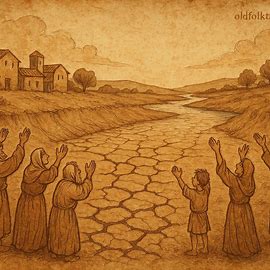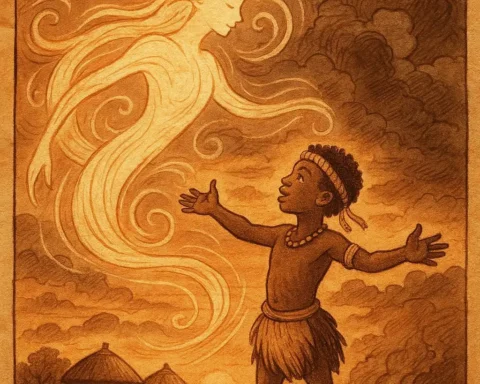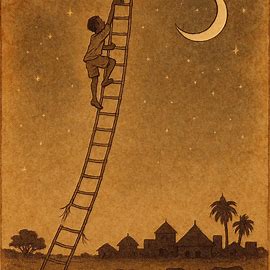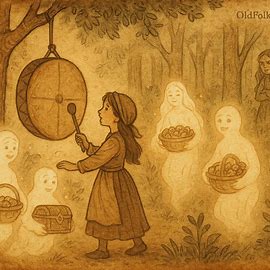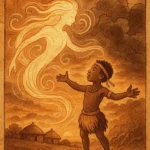Long ago, in the heart of a fertile land, there was a river whose waters nourished the life of a thriving village. Day after day, its current sparkled under the sun, feeding the fields, quenching the thirst of both people and animals, and sustaining the rhythm of daily living. The villagers fetched water in clay pots, children splashed and played in its shallows, and fishermen drew up nets filled with gleaming fish. For generations, the river had been their silent companion, an unending source of life and joy. Yet as time passed, the people grew careless, taking more than they needed, polluting its banks, and treating its blessings with neglect.
One morning, as dawn broke and the mist rose above the empty riverbed, the villagers woke to a shocking sight, the river was gone. Where once its waves had flowed, there remained only dry sand and cracked earth. Alarm spread quickly through the village. Mothers cried out in despair as their water pots lay empty, while elders gathered at the barren banks, wondering what curse had fallen upon them.
The people called out in anguish, “River, where have you gone? Why have you left us?”
From the distance came a voice, rolling like thunder over the plains:
“You waste my waters, and you show no respect. I will flow where the earth is loved.”
The voice echoed with sorrow, not anger, as though the river itself was wounded by the villagers’ ingratitude.
At first, the people tried to live without it. They dug shallow wells, but they dried quickly. Their crops shriveled in the fields, animals grew weak, and the once-lively songs of the village turned into laments. The fishermen, now without work, sat silently by their empty nets. Soon hunger and thirst spread, and the earth cracked beneath the unforgiving sun.
The elders called the people together. “We have wronged the river,” they said. “It gave us life, yet we wasted and dishonored it. We must humble ourselves and repent.”
So the villagers fasted and prayed. They gathered at the old riverbank, singing songs of sorrow and gratitude, offering words of respect, and promising to treat the river as a sacred gift if only it would return. For many days they kept their vigil, and each night they cried out, begging forgiveness.
One evening, a distant rumble stirred the horizon. The people rushed to the dry bed and saw faint trickles of water seeping through the cracks. Slowly, the trickles became streams, and the streams grew into a current. The river had returned, but it flowed farther from the village than before. Though they rejoiced at its return, the people understood the river’s decision—it had forgiven, but it would not forget. From that day on, the villagers treated its waters with reverence, teaching each generation that nature must be honored, for it holds the power to give and to withhold.
Moral Lesson
This tale teaches that gratitude and respect must guide the way we treat the natural world. When blessings are taken for granted and squandered, even the most faithful gifts may withdraw. The villagers’ suffering revealed a simple truth: nature is not bound to serve us, but it flourishes where it is cherished.
The story also warns that though forgiveness may come, it often carries lasting consequences. Once trust is broken, harmony can be restored only through humility and change. Respect for nature ensures that future generations may continue to thrive.
Knowledge Check
Q1: What essential resource did the villagers lose in the story?
A1: They lost the river, which provided water, food, and life to their land.
Q2: Why did the river decide to move away from the village?
A2: Because the villagers wasted its waters and failed to show respect.
Q3: How did the absence of the river affect the villagers?
A3: Their land became barren, crops failed, animals weakened, and hunger and thirst spread.
Q4: What actions did the villagers take to seek forgiveness from the river?
A4: They fasted, prayed, sang songs of sorrow and gratitude, and promised to honor the river.
Q5: Did the river return to its original place after forgiveness?
A5: No, it returned but flowed farther away, showing forgiveness but also lasting consequence.
Q6: What is the central lesson of this Sudanese folktale?
A6: The story teaches respect and gratitude for nature, reminding us never to take its gifts for granted.
Source: Sudanese folktale, collected among the Zande people by Frobenius, 1923.
